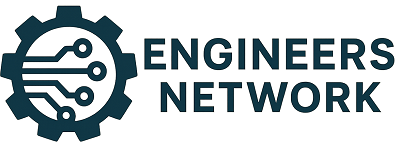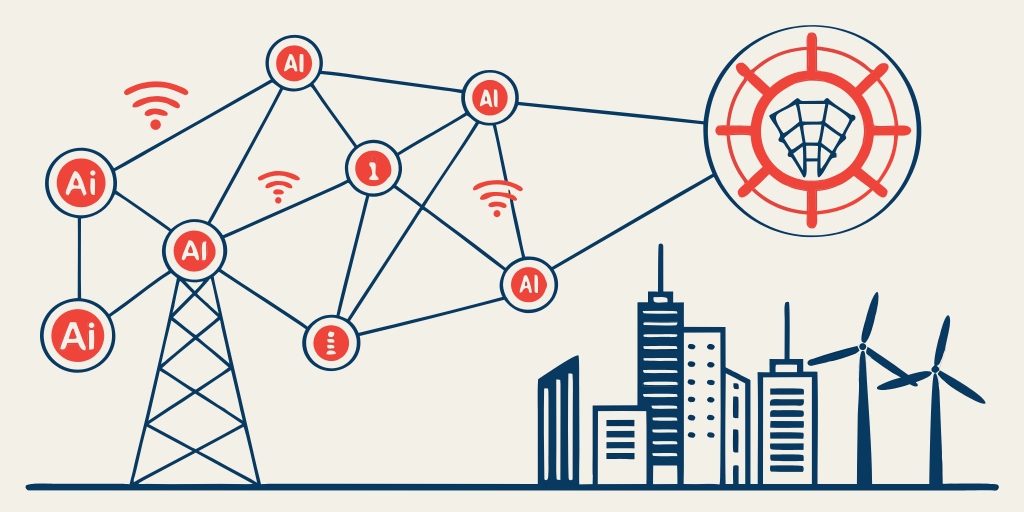Smart Power grids are transforming how we manage and distribute electricity, making power systems more efficient and reliable. As global energy demands grow, aging infrastructure and the integration of renewable energy sources create new challenges. Artificial intelligence (AI) is revolutionizing predictive maintenance, helping utilities anticipate equipment failures and optimize grid performance. EDIBON, a global leader in technical teaching equipment, equips future engineers with tools to master these advanced systems. This blog explores how AI enhances predictive maintenance in smart grids, focusing on EDIBON’s contributions to industrial engineering education. Discover how intelligent technologies and innovative training solutions are shaping a sustainable energy future.
What Are Smart Grids and Predictive Maintenance?
Smart grids use advanced sensors, communication networks, and data analytics to manage electricity flow efficiently. Unlike traditional grids, they integrate renewable energy and enable two-way communication for real-time monitoring. Predictive maintenance involves using data to predict equipment failures before they occur, reducing downtime and costs. AI plays a pivotal role by analyzing vast datasets from grid sensors to identify patterns of wear and tear.
For instance, machine learning models process data from transformers and cables to forecast potential issues. This proactive approach minimizes outages and extends equipment lifespan. EDIBON’s training systems simulate these processes, allowing students to practice predictive maintenance in realistic scenarios. By mastering these technologies, future engineers can ensure grid reliability and sustainability.
How AI Enhances Predictive Maintenance
AI improves predictive maintenance by analyzing real-time and historical data to predict equipment health. Machine learning algorithms detect anomalies in grid components like transformers, enabling timely repairs. For example, sensors monitor temperature and vibration, and AI models flag irregularities that signal potential failures. This reduces unexpected outages and maintenance costs.
Additionally, AI optimizes maintenance schedules by prioritizing tasks based on risk. Utilities can focus resources on critical components, improving efficiency. EDIBON’s equipment, such as the AEL-MGP system, helps students simulate these AI-driven processes. By training on real-world scenarios, students learn to manage complex grid systems effectively.
AI Applications in Microgrid Power Systems
Microgrid power systems are smaller, localized grids that can operate independently or with the main grid. AI enhances their reliability through predictive maintenance. Machine learning models analyze data from renewable sources like solar panels to predict output and equipment needs. This ensures stable energy supply in remote areas.
Moreover, AI-driven systems monitor battery storage in microgrids, optimizing charge and discharge cycles. For instance, EDIBON’s AEL-MGP system allows students to simulate microgrid operations, including predictive maintenance tasks. By practicing with real-time data, students gain skills to manage decentralized energy systems. This training is vital for addressing global energy challenges.
EDIBON’s Role in Training Future Engineers
EDIBON, a global leader in technical teaching equipment, provides innovative tools for industrial engineering education. Its systems cover electrical engineering, automation, and renewable energy, focusing on smart grids and microgrid power systems. The AEL-MGP system, for example, offers hands-on training in grid management and predictive maintenance.
Students use EDIBON’s equipment to simulate real-world energy scenarios, learning to analyze data and optimize grid performance. The systems integrate SCADA technology for real-time monitoring, preparing engineers for modern energy challenges. By fostering practical skills, EDIBON ensures graduates are ready to lead sustainable energy initiatives.
Benefits of AI-Driven Predictive Maintenance
AI-driven predictive maintenance offers significant advantages for smart grids. It reduces downtime by identifying issues early, ensuring a stable power supply. For example, utilities can save up to 56% on maintenance costs by using AI to prioritize repairs, according to research from Argonne National Laboratory.
Additionally, AI enhances grid resilience by integrating renewable energy sources. It forecasts solar and wind output, balancing supply and demand. EDIBON’s training systems help students master these benefits, preparing them to implement AI solutions in real-world grids. This supports a sustainable and efficient energy future.
- Cost Savings: AI reduces unnecessary repairs, lowering operational expenses.
- Improved Reliability: Early detection prevents outages, ensuring consistent power.
- Sustainability: AI optimizes renewable energy use, reducing carbon emissions.
Challenges of Implementing AI in Smart Grids
Implementing AI in smart grids faces several challenges. Data quality and accessibility are critical, as AI relies on accurate sensor data. Poor data can lead to incorrect predictions, reducing effectiveness. Additionally, cybersecurity risks arise from increased connectivity, requiring robust protection measures.
Another challenge is the need for skilled professionals to develop and manage AI systems. EDIBON addresses this by training students in AI applications for grid maintenance. Its equipment simulates real-world challenges, helping students overcome implementation hurdles. By fostering expertise, EDIBON supports the adoption of AI in energy systems.
The Future of AI in Smart Grid Maintenance
The future of AI in smart grid maintenance is promising. Advancements in machine learning and IoT will enhance predictive capabilities, enabling faster and more accurate failure detection. For instance, digital twin models will simulate grid components, optimizing maintenance schedules.
Moreover, AI will improve integration of electric vehicles and renewable energy, supporting decarbonization goals. EDIBON’s commitment to innovation ensures its equipment evolves with these trends. By training students on cutting-edge systems, EDIBON prepares engineers to shape the future of sustainable energy.
Why EDIBON’s Equipment Stands Out
EDIBON’s technical teaching equipment is renowned for its quality and versatility. Designed for universities and technical institutions, it offers modular systems that replicate real-world grid operations. The AEL-MGP system, for instance, supports over 70 practical exercises, covering predictive maintenance and grid management.
Additionally, EDIBON’s use of industrial-grade components ensures durability and realism. Its SCADA integration allows students to monitor and control systems in real time, mimicking utility operations. This hands-on approach makes EDIBON a leader in preparing engineers for smart grid challenges.
Conclusion
AI is transforming predictive maintenance in smart grids, enhancing efficiency and reliability while supporting sustainable energy transitions. EDIBON’s advanced technical teaching equipment plays a crucial role in preparing future engineers to harness these technologies. By simulating real-world scenarios, EDIBON equips students with the skills to manage smart grids and microgrid power systems effectively. As the energy sector evolves, EDIBON’s commitment to innovation ensures a skilled workforce ready to tackle global challenges. Share your thoughts on AI in energy systems below or spread the word about sustainable energy solutions!


Leave a Reply